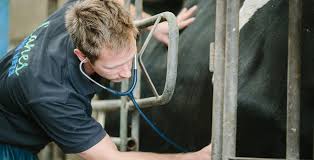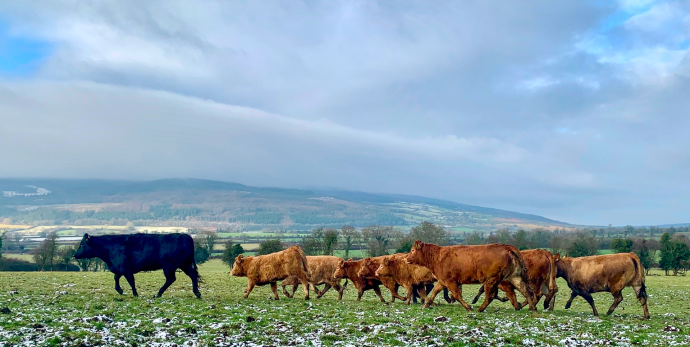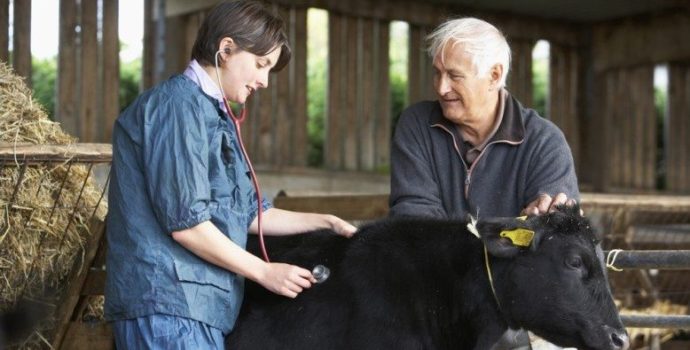Animal Health Council Report July 2022

TB
Latest bovine TB Statistics

- IFA continue to set out the key areas that must be addressed in the TB Strategy.
- The most recent meeting of the TB Implementation Working Group took place on Monday 4th of July 2022.
- The M Bovis conference, disease trends, communications and animal health law were all discussed at this meeting.
- The communications sub group have created informative letters relating to the changes to TB testing due to the animal health law which will issue to farmers in the coming months.
- The communications subgroup has also developed an informative letter in relation to contract rearing risk mitigation plans which will be issuing to farmers who engage in contract rearing systems. These plans intend to reduce the risk of disease spread and address compensation concerns and complications.
- Completing the pre-emptive risk mitigation plan is optional however it is advisable that all farmers taking part in contract rearing complete a plan to protect compensation in the unfortunate case of an outbreak.
- IFA were involved in developing a flowchart and FAQ leaflet for farmers who experience a breakdown. These documents provide the fundamental information for farmers during a TB outbreak and aim to answer the most commonly asked questions.
- IFA have highlighted the positive impact the facilitation of calf sales up 120 days old on the home market has had both in terms of calf welfare and value for both the seller and buyer. DAFM recognise this and have committed to using the data to again seek a permanent facilitation within the EU Trade Directive.
- IFA are seeking an incentive payment for farmers who agree to remove Inconclusive animals from the farm
- IFA have called for fundamental changes to the support schemes in the TB programme. These include, higher levels of payment in the income supplement, depopulation grant and hardship grant schemes and changes to the eligibility criteria for income supplement and depopulation grant schemes as set out in our detailed submission to the TB Forum in 2018.
- DAFM are continuing with the remapping of badger setts nationally and have recognised the significant information being provided to them by farmers.
- The recently launched app for reporting badger sets on farms is been utilised by farmers however IFA have made the point to DAFM that when farmers use the app to notify setts, they must be investigated in a timely manner.
- The badger notification app can be accessed at: https://badger-sett.apps.rhos.agriculture.gov.ie/
- IFA have demanded that the additional €1m provided for the Wildlife Programme in the budget is utilised to employ staff to carry out set surveying and capturing of badgers
- IFA have sought the details on the terms of reference for the National Deer Group which is to be re-established as a result of IFA’s demands in the TB Forum and Implementation group
- Next Steps
- The substantive issue to be addressed is developing a funding model for the TB programme
- The next Financial working group meeting is scheduled for 21st July where this issue will be further discussed
- Implementation of the pre/post movement 30-day test on cows and bulls over 36 months leaving herds that are over 6 months TB tested. The key issue to be resolved is payment for this test.
- IFA have clearly set out DAFM must pay for any additional tests legislatively required that go beyond the annual herd test.
BVD
Latest BVD Weekly Figures

- The latest meeting of the BVD IG was held on the 21st of June 2022.
- IFA support the objective to reach BVD Free Status by 2023, recognising the benefits and the direct investment of over €100m of farmers to-date in the programme.
- IFA have outlined these calculations to AHI and DAFM.
- IFA have set out the keys points that must form the basis of the BVD programme from 2023 onwards:
- The testing and surveillance from 2023 onwards, which is required to prove on-going freedom must be paid for in full by the Department of Agriculture, which is consistent with the publicly stated Department of Agriculture policy of cost and responsibility sharing in disease control. It is now time for the Department to make their contribution towards testing in this programme.
- The testing approach that will be implemented must provide a high level of early case detection to protect the status achieved by farmers.
- Where cases are found and controls imposed on farmers to avoid any further spread these farmers must be supported in full for the cost and impact of these controls.
- IFA have met with AHI and DAFM to discuss the high-level surveillance and funding of this surveillance.
Maps of BVD cases 2013 and 2022


Veterinary Medicines
- IFA continue to highlight the key issues with the regulations which include anthelmintics becoming POM in 2022, prophylactic use of antibiotics will be banned (e.g. Blanket Dry Cow Treatment), a prescription for antibiotics will only be valid for 5 days and the issue of who can prescribe.
- Following significant concerns being raised by IFA, Licensed Merchants and veterinary pharmacies the Minister decided to defer implementation of the prescribing requirement for anti-parasitic products until December 1st 2022. IFA continue to call for meaningful engagement with key stakeholders to resolve the issue.
- This deferment must provide an opportunity to develop an approach that allows farmers avail of maximum competition in the supply chain, and that prescribing is not influenced by commercial interests.
Electronic Prescription System
- DAFM have developed an electronic prescription system which is currently undergoing testing by a number of vets across the country. The implementation of this electronic system has been delayed until the 1st of December.
- The system has advantages but IFA have raised data concerns with DAFM. The access electronic prescriptions could provide for DAFM and others to individual farmers medicines usage is not acceptable. This has been raised directly with senior DAFM personnel.
- This system is not sufficient to address the issues with competitive supply of anti-parasitic products and is not user friendly in its current capacity.
VAT Rate for Non-Oral Vaccines
- IFA have welcomed progress by the Department of Agriculture towards reducing the VAT rate on non-oral vaccines to 0%.
- The IFA Animal Health Committee has campaigned for the VAT rate on non-oral vaccines to be reduced to 0% for a number of years and the objective to provide this from 2024 is the first time a target date has been set and it’s important this objective is delivered on.
- The current VAT rate is 23%. With farmers spending in excess of €40m annually on vaccines alone, this could result in savings of over €10m for farmers.
Parasite Control TASAH
- IFA have recognised that the Parasite Control TASAH is an important first step but must to be expanded to reward farmers for taking part.
- The TASAH includes a veterinary farm visit and two faecal egg counts and is open to all cattle and sheep farms. Funding is available for up to 40,000 farmers to participate this year.
- Direct financial support to farmers implementing the TASAH would be a key aspect to increase the value for farmers and ultimately drive participation in the programme.
IBR
- AHI Chief Executive David Grahm attended the latest Animal Health committee meeting to update on progress in developing a National IBR programme.
- A cost benefit analysis has been completed and will be presented to the Implementation Group
- The programme if adopted will run for a minimum of 15 years
- Key decisions will relate to a funding model that ensures all beneficiaries contribute to the costs
- Drivers for a National programme are improved animal health, reduced medicines usage and access to export markets for live animals
Fallen Animals
- IFA have called on DAFM to have a full review of the disposal arrangements.
- The scheme in its current format protects the interests of rendering plants and licensed knackeries at the expense of farmers.
- The current system fails to deliver for farmers and the two key issues that must be addressed are guaranteed collection of all animals and competitive collection fees.
- Maximum collection fees:
| Category | Age | Max Collection Fee |
| Bovines | +48 months | €54.03 |
| 24-48 months | €100 | |
| 12-24 months | €80 | |
| 6-12 months | €50 | |
| 3-6 months | €35 | |
| 0-3 months | €30 | |
| Sheep | €30 |
Budget Submission
- The Government must support the commitments made by farmers by providing direct and indirect resources to help farmers continue to invest in the health status of the national herd while also protecting farmers from unnecessary bureaucracy and controls. Farmers are committed to proactively addressing concerns relating to Antimicrobial Resistance (AMR) at farm level. Reducing the cost of vaccines and other preventative treatments will increase usage as part of herd health programmes which in turn will reduce the need for antibiotic usage on farms. Strong meaningful direct financial supports to disease eradication and control programmes will be critical to their success.
IFA propose:
- Support for Farmers Implementing Best Practice Disease Control and Medicine Usage on Farm Overarching Animal Health Programme for all farmers that directly supports farmers in implementing best practice disease prevention and targeted medicines usage on farms that recognises the on-farm costs and additional labour requirements associated with applying these practices on farm and critically implementing them for 365 days a year. The TASAH Parasite Control Programme is a first step but fails to directly support farmers for participation. This must be built on and provide farmers with direct financial incentives and supports to deliver the programme on their farms.
- 0% VAT Rate on non-oral medicines
Government must advance the timeframe suggested to apply the 0% Value-Added Tax (VAT) rate on non-oral animal medicines and vaccines worth over €10m annually to farmers in direct savings.
- Regional Veterinary Laboratories
The €33.5m allocated in 2019 for a 10-year programme to enhance the Regional Veterinary Laboratory Network and associated services to farmers must be utilised. Better access to the laboratory network for all farmers and enhancements to the analytics and services offered by the Regional Veterinary Laboratory network must be provided.
- TB Programme
A fair and equitable funding model with upfront investment to deliver on longer term goals must be provided, recognising farmers labour contribution of over €20m annually in addition to the €28m in annual testing and almost €8m in disease levies. The increased funding is critical to provide for the enhanced measures proposed in the TB Forum and to provide farmers impacted by TB Controls who through no fault of their own have their incomes decimated through animal removals, restrictions and additional more frequent testing. Providing farmers with a fair level of income support for animals removed based on IFA’s proposals to the Forum is costed at just over an additional €7m.
The TB Forum agreed that the doubling of resources is necessary for the Wildlife Control Programme to function effectively and efficiently in delivering reductions to the levels of TB in both the cattle and badger population. The funding for the additional resources must be realised and the resources must be put in place to deliver ‘boots on the ground’ to implement the programme in areas where there are disease problems that are associated wildlife.
The announcement to re-establish the National Deer Management Group is welcome, however this group must be resourced and funded to implement measures on the ground that will realise a reduction in deer numbers where they are encroaching on farm land and also the provision of a targeted density reduction programme for deer where they are associated with Tb outbreaks in cattle.
- BVD
Farmers have invested directly over €100m in the BVD programme since it commenced voluntarily in 2012, before becoming compulsory in 2013. Achieving the milestone on 1st January 2023 must bring immediate change for farmers in their experience of the programme. It is prudent to continue with the most effective case detection method in the programme for 2023 at a minimum, therefore the fundamental change farmers must see is the removal of the direct costs of BVD sampling and testing.
The higher-level national surveillance, proof of freedom, in the Bovine Viral Diarrhoea (BVD) programme that will commence in 2023 must provide farmers with the most effective case detection approach and be fully funded by DAFM. Farmers have made their direct and indirect contribution to this programme since 2012, delivered on the objectives of the programme and it is now time for Government to step in in acknowledgement of the achievements of breeding farmers and the beneficiaries who to-date have not incurred any BVD programme costs. This is estimated to cost €10m in the first year reducing annually as the TWG profile the likely risk herds.
- Johnes
The Department of Agriculture funding and resource commitment to the programme must be extended and built on to help drive participation.
- IBR
Resources must be provided for the National Infectious Bovine Rhinotracheitis (IBR) programme based on an equitable funding model that reflect the beneficiaries and wider benefits for the national economy associated with the programme.
- Fallen Animal Collection Service
The Fallen Animal Collection Service must be reviewed, restructured and funded to an appropriate level that ensures all farmers have access to a guaranteed efficient and competitively priced Fallen Animal Collection Service.
Compulsory Bovine EID
- Compulsory to EID tagging of all calves commenced in July 2022.
- Tag suppliers will have provided EID tags with all new orders since January 2022.
- IFA position is that farmers must be provided with adequate funding and that those farmers with stocks of tags already purchased must be facilitated past the July 1st 2022 deadline.
- Following IFA intervention, yellow EID tags are acceptable while using up stocks that farmers have on hand. White EID tags have been supplied since January 2022.
- IFA are seeking financial support for farmers who wish to purchase an EID reader
- Details of subvention scheme:
- EID tag sets are white in colour and will be eligible for funding under a tag subvention scheme.
- The intention is that the scheme will operate over 3 years (2022 to 2024 inclusive) with the first payments scheduled to take place in Quarter 4 2022.
- Payments in 2022 will be calculated on the number of new EID tag sets purchased from 1st January 2022 at a rate of €1 per new EID tag set.
- There is a maximum payment of €100 per farmer over the life of the scheme and no application process will be required.
- The scheme is proportionately weighted in favour of smaller producers.
- Farmers can only order annually the number of new tag sets required commensurate to the number of breeding females in the herd.


